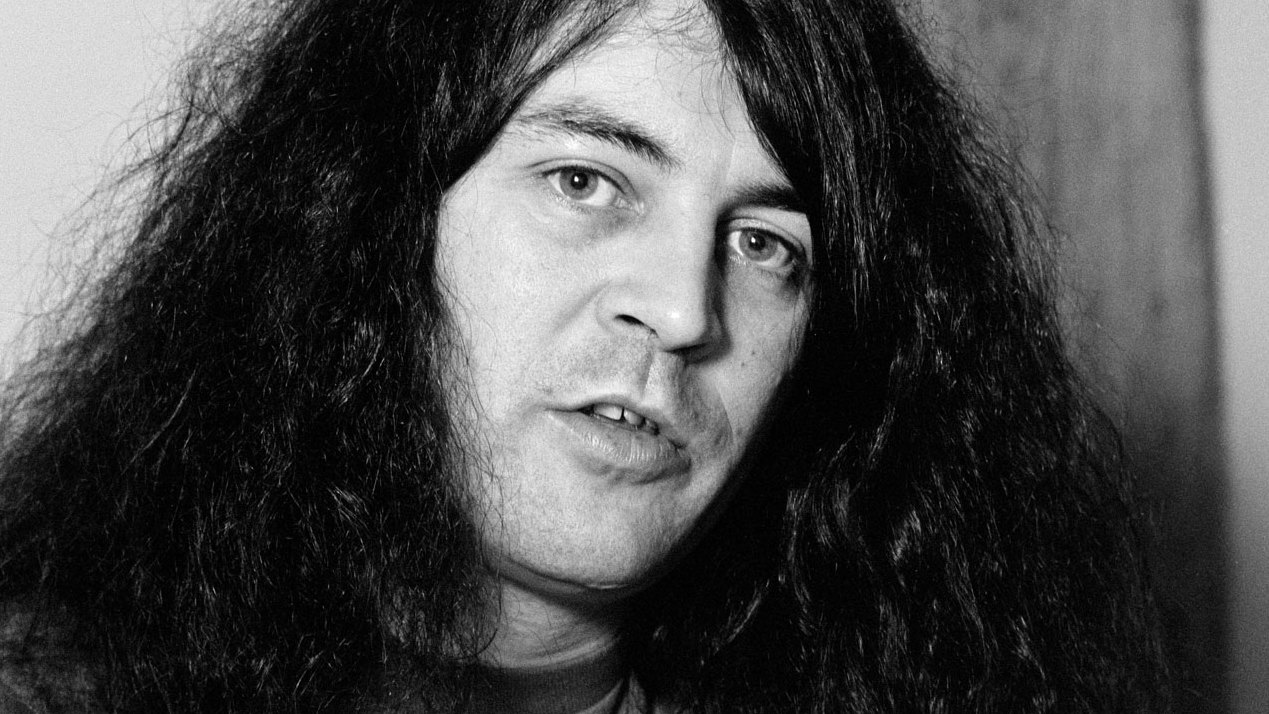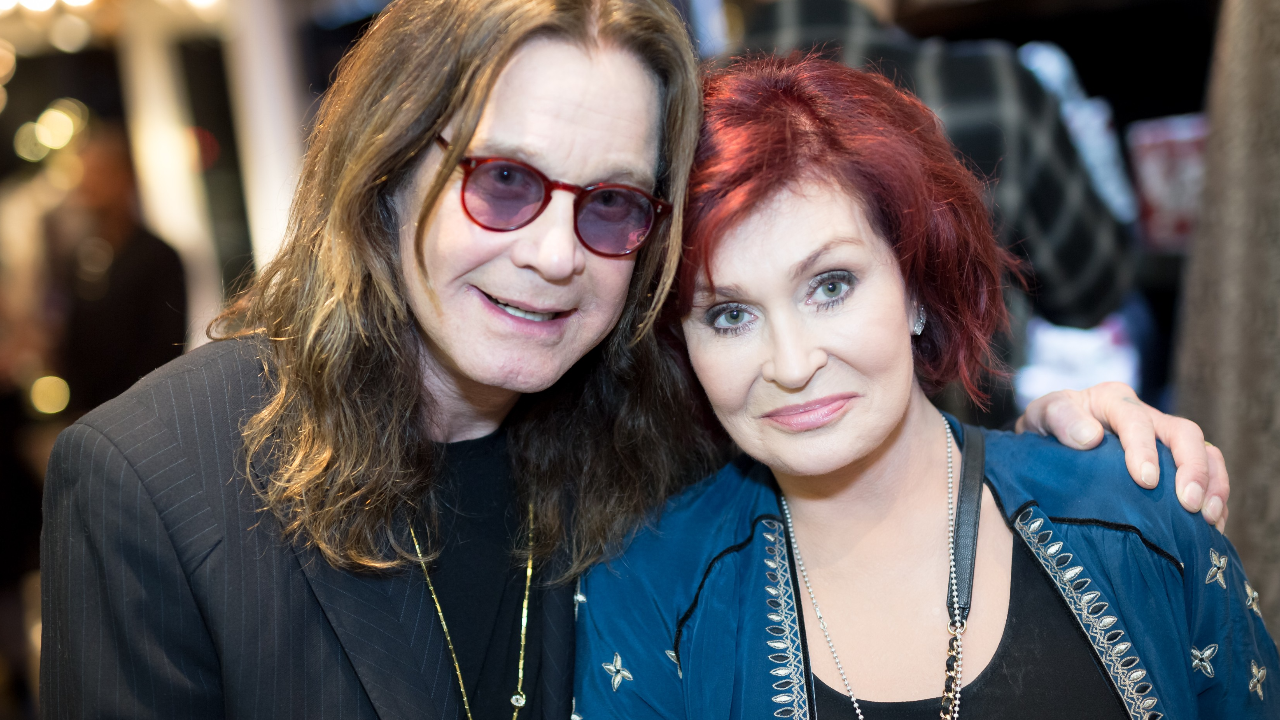Ian Gillan's 10 Favourite Gillan Songs
As Gillan's albums are reissued as a vinyl box set, singer Ian Gillan examines each disc in turn and comes up with 10 favourites...

Ian Gillan has a special affection for Gillan.
“We weren’t together that long (1979-1982), but during this time we did a lot of great music. It was an amazing time for rock, and we were a big part of it. The fact that we did the Reading Festival every year from 1979 to 1981, each time further up the bill until we headlined the last time, underlines the way Gillan just grew. We also got to the Monsters Of Rock at Donington in 82.
“It was a band that never rested on reputation, and we did record some superb songs.”
Here are Ian Gillan’s personal favourites. “They’re not in any special order,” he says. “They all mean something to me.”
The Gillan box set – The Vinyl Collection – is released on October 21.
Bluesy Blue Sea (from Magic, 1982)
“I love this, because it’s completely different to anything we ever did before. I am always inspired by the first thing I see in the morning. I was in Dorset when I wrote this, and it was the sea that really influenced my thinking here. The whole feel of it was very avant-garde, which is something we’d never previously done. For me, the sea and the ocean is so spiritual.
Sign up below to get the latest from Classic Rock, plus exclusive special offers, direct to your inbox!
“I have a friend, Justin Levins, who is a fighter in the UFC, and he’s used this as his intro music. It works!”
Unchain Your Brain (from Glory Road)
“This is the first of what I’d call my nursery rhyme type of titles. It’s a really fast song. I recall Ritchie Blackmore once saying that anyone can write a mid-tempo track. But to do a convincing fast one… that takes talent. We had it as a live opener for ages. This came out in the era when NWOBHM was happening, and it fitted in well. This song was balls to the wall, with no inhibitions, which was what a lot of younger bands were doing.”
No Easy Way (from Glory Road, 1980)
“I love this especially because of Colin Towns’ keyboard intro. Colin used to come up with ideas that were… well, perhaps not innovative, but certainly very fresh. The one here was a great representation of his trademark approach. There’s a real magic about it.
No Laughing In Heaven (from Double Trouble, 1981)
“I know this was originally on Future Shock, but this version was recorded at the Reading Festival, and alongside Made In Japan, this is the best live album I have ever been involved with. The song itself is about how I don’t want to go to heaven, because I know the sort of people who’ll be waiting there, and I want to avoid them!
“Drummer Leonard Haze has just died. He and I toured together when I put out my Toolbox album in 1991. We used to do this song live, and Lenny agreed with me that he also didn’t want to go to heaven when he died. So I know where he is now – and he’ll be waiting for me.”
Men Of War (from Double Trouble, 1981)
“Another balls to the wall, rock’n’roll song. It’s typical of the time, with loads of yelling. The thing about a song like this is that it is carefully crafted in the studio. But once it gets in front of an audience, then it’s a case of going flat out. There’s no holding back.”
- A Week In The Life: Ian Gillan
- Ian Gillan's guide to the five Gillan albums
- Ian Gillan: "The band had collapsed financially, I couldn't pay the wages"
- Ian Gillan: The Day I Left Deep Purple
Fighting Man (from Mr Universe, 1979)
“This is really the track that launched Gillan. At the time, the Ian Gillan Band had just released Scarabus, but our jazz rock direction had just about run its course. Unbeknown to me, Colin had written this song, including the lyrics. One day I came into Kingsway Studio in London, and Colin was playing Fighting Man on the piano. I loved it, but the rest of the band were really mocking him.
“I wanted to record this, but knew the other guys would never go for it, because they were laughing at Colin. So, because I didn’t have the heart to fire anyone, I decided to leave my own band! Gillan were formed, and off we went.”
Puget Sound (from Mr Universe, 1979)
“This is about my amazing journey across America, from New York to Seattle, on a 99 dollar Greyhound Bus trip. I met this girl on the bus, we got on well and let’s just say it was a nice journey! She was staying with her aunt for a while, and I was visiting my family. But by coincidence, we met again on the bus on the way back, and did things in reverse – so to speak!”
Night Ride Out Of Phoenix (from Future Shock, 1981)
“This was about a true story that happened when I was in Deep Purple. After a show, myself, my girlfriend and the band’s road manager decided we’d love to go horse riding. So the road manager contacted a ranch and arranged for us to pick up three horses at midnight. But, in the usual touring style, we went to the hotel bar and totally forgot about the horses. Then at 2am, the road manager suddenly remembered – shit! So, we drove out to the ranch, fully expecting nothing to be there. You know what? There were three horses saddled up and ready for us.
“We rode out across the Arizona desert, and the view was amazing. On one side were the lights from the city of Phoenix, while on the other was the natural beauty of the desert. It was a truly amazing experience.”
Trouble (from Double Trouble, 1981)
“This was an Elvis cover; he’d done it for the King Creole movie. It was also a big hit single for us (Gillan’s biggest, reaching number 14 in the UK chart). During our time together, the band did a few covers. But this is my favourite. And whenever we did it live, the fans really went wild. Our version was insane, but worked pretty well.”
On the Rocks (from Glory Road, 1980)
“I have to confess I’m not actually sure why I like this song. I was going through a list of what we did when choosing this Top 10, and I got to On The Rocks, and thought that I wanted to include it. There’s a special aura about this song. I love the fact that Colin played the flute here. That certainly makes it stand apart from any other Gillan song!”
Malcolm Dome had an illustrious and celebrated career which stretched back to working for Record Mirror magazine in the late 70s and Metal Fury in the early 80s before joining Kerrang! at its launch in 1981. His first book, Encyclopedia Metallica, published in 1981, may have been the inspiration for the name of a certain band formed that same year. Dome is also credited with inventing the term "thrash metal" while writing about the Anthrax song Metal Thrashing Mad in 1984. With the launch of Classic Rock magazine in 1998 he became involved with that title, sister magazine Metal Hammer, and was a contributor to Prog magazine since its inception in 2009. He died in 2021.

